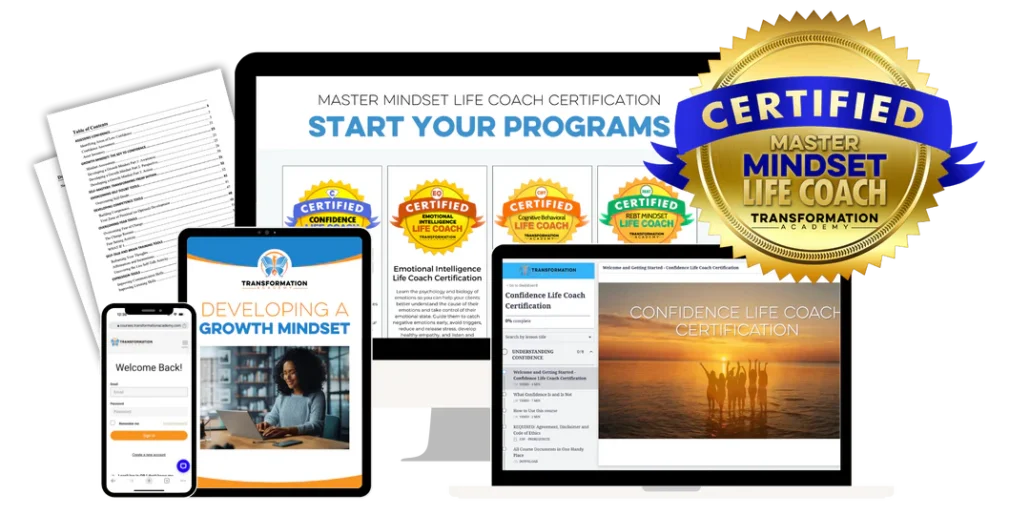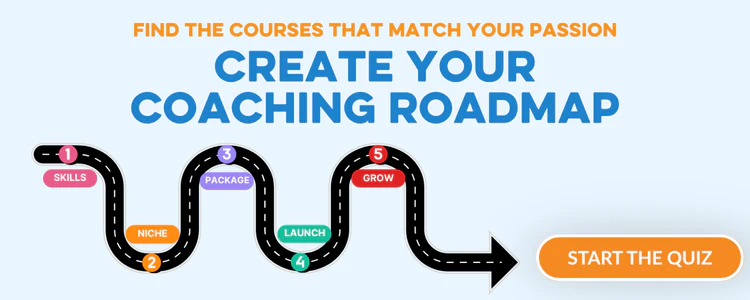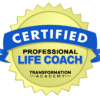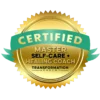Mindset Coaching: Mastering mindset coaching equips you with the tools to help clients overcome limiting beliefs and unlock their potential. Whether it’s helping someone boost their confidence, manage emotions, or change deeply ingrained thoughts, mindset coaching is at the heart of personal transformation. In this guide, we’ll dive into the steps you can take to become a master mindset coach, from certification to building a thriving coaching business.
What Is a Master Mindset Coach?
A master mindset coach goes beyond traditional coaching methods. While a regular mindset coach might focus on basic strategies to help clients shift their mindset, a master coach has a deeper understanding of how thoughts, beliefs, and emotions work. They specialize in identifying and reshaping limiting beliefs, using advanced techniques like Cognitive Behavioral Therapy (CBT) and Emotional Intelligence (EQ) coaching. By mastering these tools, you can guide clients through profound, long-lasting transformations.
The Importance of Mindset Coaching in Personal Growth
Mindset plays a pivotal role in how individuals navigate their lives. It determines how they approach challenges, seize opportunities, and ultimately, whether they succeed or fail. A mindset coach helps clients recognize and break free from limiting beliefs—those internal narratives that hold them back. Whether it’s fear of failure or self-doubt, mindset coaching can drastically alter a person’s trajectory, opening doors to personal and professional growth.
Key Skills Needed to Become a Master Mindset Coach

To become an effective mindset coach, you need to master several key skills:
- Emotional Intelligence (EQ): Understanding emotions helps you connect with clients on a deeper level, facilitating more meaningful breakthroughs.
- Active Listening: Coaches must listen beyond words to uncover the true motivations and blocks.
- Cognitive Behavioral Techniques: CBT helps in rewiring negative thought patterns, empowering clients to adopt more constructive ways of thinking.
- Confidence-Building: Mastering techniques to help clients boost their self-esteem is fundamental in mindset coaching.
Steps to Become a Master Mindset Coach in Mindset Coaching
Step 1: Get a Mindset Coaching Certification
The first step in becoming a master mindset coach is to gain formal training. Certification programs provide structured learning, guiding you through the theories and techniques that are essential for effective coaching. One such program is the Master Mindset Coach Certification, which offers in-depth training in confidence, emotional intelligence, and cognitive behavioral coaching.
Step 2: Specialize in Niche Areas of Mindset Coaching
The most successful coaches often specialize. Whether it’s confidence coaching, emotional intelligence, or CBT, focusing on a niche allows you to master specific techniques and build a strong reputation in that area. The Master Mindset Coach Certification includes four key areas of specialization:
- Confidence Life Coach Certification
- Emotional Intelligence Coach Certification
- Cognitive Behavioral (CBT) Coach Certification
- REBT Coach Certification
Step 3: Gain Practical Coaching Experience
Experience is crucial to becoming a skilled coach. Start by offering free or discounted sessions to friends, family, or even on social media platforms. This will allow you to refine your methods and gain testimonials that can boost your credibility.
Step 4: Build Your Personal Brand and Coaching Business
Your success as a mindset coach hinges on building a personal brand that resonates with your target audience. Establish a strong online presence through a professional website, blog, or social media profiles. Marketing yourself effectively is key to attracting clients, and the first step in this is positioning yourself as an expert in your niche.
Why Certification Matters for Mindset Coaches
Certification sets you apart from others in the coaching industry. It signals to potential clients that you are not only knowledgeable but also committed to following ethical standards. Moreover, certified coaches tend to build trust more quickly, as clients feel reassured knowing they are in capable hands.
Overview of the Master Mindset Coach Certification

-
Confidence Life Coach Certification: In this course, you’ll learn how to empower clients to develop unshakeable self-confidence. The techniques taught here are fundamental for helping people overcome self-doubt and fear of failure.
-
Emotional Intelligence Coach Certification: Emotional intelligence is a key determinant of success, both personally and professionally. This certification teaches you to help clients develop EQ, which leads to better decision-making, improved relationships, and enhanced emotional resilience.
-
Cognitive Behavioral (CBT) Coach Certification: CBT is widely used in coaching to help clients change negative thought patterns. This course covers practical techniques you can use to help your clients think more positively and productively.
-
REBT Coach Certification: Rational Emotive Behavioral Therapy (REBT) is another powerful tool used in mindset coaching. This certification helps coaches understand how emotions influence actions and provides tools to reshape those emotional responses.
How Mindset Coaches Help Clients Achieve Their Goals
Mindset coaches work with clients to identify barriers that stand in the way of success, whether it’s a lack of confidence, poor emotional management, or limiting beliefs. Through techniques such as CBT, REBT, and emotional intelligence, coaches provide clients with the tools to set and achieve goals they once thought impossible.
Building a Successful Mindset Coaching Business
Creating a thriving coaching business requires careful planning and execution. Focus on defining your niche, setting your pricing, and delivering consistent value to your clients. As you gain more clients and experience, word-of-mouth referrals will become one of your most powerful marketing tools.
Common Challenges New Mindset Coaches Face
Like any new venture, mindset coaches may face hurdles such as imposter syndrome, finding their first clients, or balancing ongoing personal growth with coaching responsibilities. The key is to stay persistent and continue learning from every experience.
The Power of Emotional Intelligence in Mindset Coaching
Emotional intelligence is a game-changer in mindset coaching. When you understand not only your own emotions but also those of your clients, you can create a more empathetic and effective coaching experience. This helps in building stronger connections and fostering trust with your clients.
The Role of Cognitive Behavioral Therapy in Mindset Coaching
CBT is instrumental in helping clients recognize and challenge negative thought patterns. By identifying these patterns, clients can replace them with healthier, more productive thoughts, leading to real, lasting change in their lives.
Why Continuous Learning Is Important for Master Mindset Coaches
The field of coaching is always evolving. As a mindset coach, it’s important to stay up-to-date with the latest tools and techniques. Joining coaching communities and attending advanced training sessions will keep your skills sharp and ensure you provide the best possible service to your clients.
Mastering the Art of Communication with Clients
Effective communication is essential for a mindset coach. Developing rapport, asking insightful questions, and listening actively are all crucial for helping your clients break through mental barriers.
Conclusion
Becoming a master mindset coach is a journey that requires dedication, continuous learning, and a passion for helping others. By following the steps outlined above—earning certifications, gaining experience, and building your personal brand—you can unlock the door to a rewarding and impactful career. Whether you’re helping clients boost their confidence, manage their emotions, or change deeply ingrained beliefs, the rewards of mindset coaching are immense.
Explore our Master Mindset Coach Certification for more details.
Read More: The Power of Life Coaching: Transform Lives with Purpose
FAQs
What is the difference between a regular mindset coach and a master mindset coach?
A regular mindset coach focuses on basic coaching strategies, while a master mindset coach has advanced skills in areas like CBT, emotional intelligence, and REBT, offering deeper transformations.
How long does it take to become a certified mindset coach?
It typically takes a few months to complete a certification program, depending on the intensity of the course and your dedication to learning.
Is mindset coaching a profitable career?
Yes, mindset coaching can be highly profitable, especially as you build experience, reputation, and a niche specialization.
Do I need prior experience in psychology to become a mindset coach?
No, prior experience in psychology is not required, though a basic understanding of human behavior and communication can be helpful.








